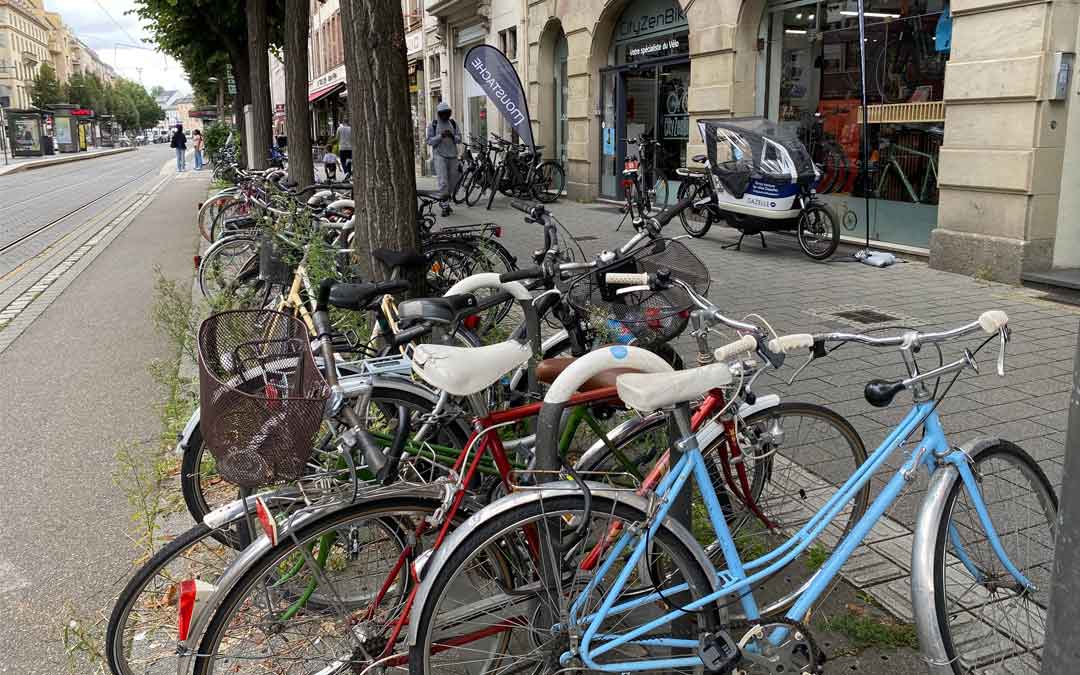A Banyule bicycle revolution

It’s time for a bicycle-led transport revolution.
The cost of living crisis, rising petrol prices and increased road congestion should have us all on our bikes.
A recent visit to London and Strasbourg was a reminder of what a remarkable form of transport the bicycle is. Using a relatively small expenditure of energy, it is possible to travel considerable distances for commuting or pleasure.
In London, bicycles are a common sight on the streets and front steps of many houses, with cars much less prevalent than in Melbourne. Since houses in London often have little space, ‘bike pods’ offering bike parking are a common sight. Strasbourg stood out as a city which has taken cycling to the next level. Rows of bicycles are everywhere, with bicycles often used for jobs otherwise done by commercial vehicles, such as delivery and waste collection.
In Banyule generally, and Macleod in particular, bicycles are a rarity. Cars are by far the dominant mode of transport around our suburb. Many of us (me included), take short trips to Macleod village and other local destinations.
The Council’s Banyule Bicycle Strategy, adopted by the Council in 2022, gave a snapshot of how dominant cars are in Banyule, with over 60% of residents travelling to work by car. The Strategy process involved looking at the reasons for this situation.
Safety and lack of connectivity (i.e., the difficulty of reaching a specific destination by cycling), were primary factors in the small number of people cycling. Studies for the Strategy showed that between 2014 and 2018, there were 98 crashes involving cyclists, with 91 per cent being crashes with a car.
As every cyclist knows, in a collision between a cyclist and a car, the cyclist will come off worse.
It is difficult to quantify the extent to which the perceived lack of safety makes cycling less attractive, but Council surveys for the Strategy listed this as an issue of serious concern. Anecdotal evidence from conversations seems to bear this out.
Lack of connection in bicycle routes is also a major disincentive to riding, making the journey potentially longer, more tiring and less appealing. Lack of connectivity also means riders may have to choose unsafe sections to complete the journey.
If we look to the London and Strasbourg examples, we can see how they have made cycling more appealing.
London (and other British cities), has introduced significantly lower speed limits in built up areas. Where 50km/h is standard in most Australian cities, with 40km/h around schools and some other areas, Britain has adopted extensive limits of 20 mp/h (32 km/h).
Strasbourg has an impressive, well-connected set of bicycle routes, with separated bicycle lanes used extensively and clear signage indicating direction of travel. These are effective enough to allow businesses to use large cargo bicycles to deliver a range of services and items. A standout example is compost delivery by cycle.
What is also apparent in both London and Strasbourg, is the culture of acceptance of cycling as a legitimate mode of transport. On roads where motor vehicles and bicycles share the same space, there is an evident acknowledgement of bicycle transport. This was highlighted for us as we watched cycles from the top deck of London double-deck buses, with the buses carefully avoiding the almost universally helmet-less riders.
If we are to encourage greater use of cycles for transport in Macleod, and Banyule more generally, we need to work to significantly improve safety and route connection. There is no easy fix for either of these issues, however the importance of reducing motor vehicle traffic and increasing pedestrian and cycle transport means we should make this a high priority.
The benefits of doing this are undeniable: less motor pollution, a more people-friendly environment, better health outcomes through exercise, lower transport costs and so on.
I propose that Sustainable Macleod adopt an objective of achieving a cycle-friendly Macleod. I would urge our members to adopt it as a major campaign.
With the Banyule City Council elections approaching, there is an excellent opportunity to question candidates on their interest in promoting safer and more effective cycling in Macleod.
We are fortunate that an example has been set the by the current Mayor and Ibbott Ward Councillor, Tom Melican, a fierce advocate for cycling during his time in office. We may not all aspire to his level of cycling, but we can certainly follow his lead in advocating for improved cycling conditions.
If you would like to join the discussion, or have a suggestion or a question, you can email: sustainablemacleod@gmail.com
Useful links:
Banyule City Council Bicycle Strategy
Bicycle Network Victoria – a huge range of activities, including insurance and cycling advocacy
Helpful information about bicycles on public transport
Written by Paul Gale-Baker
